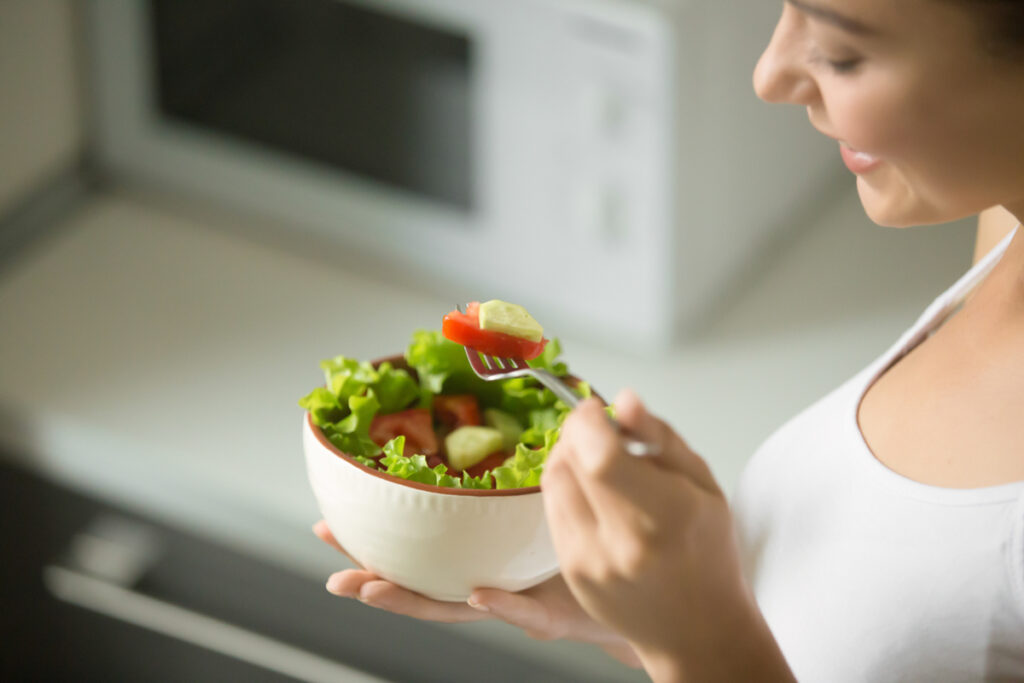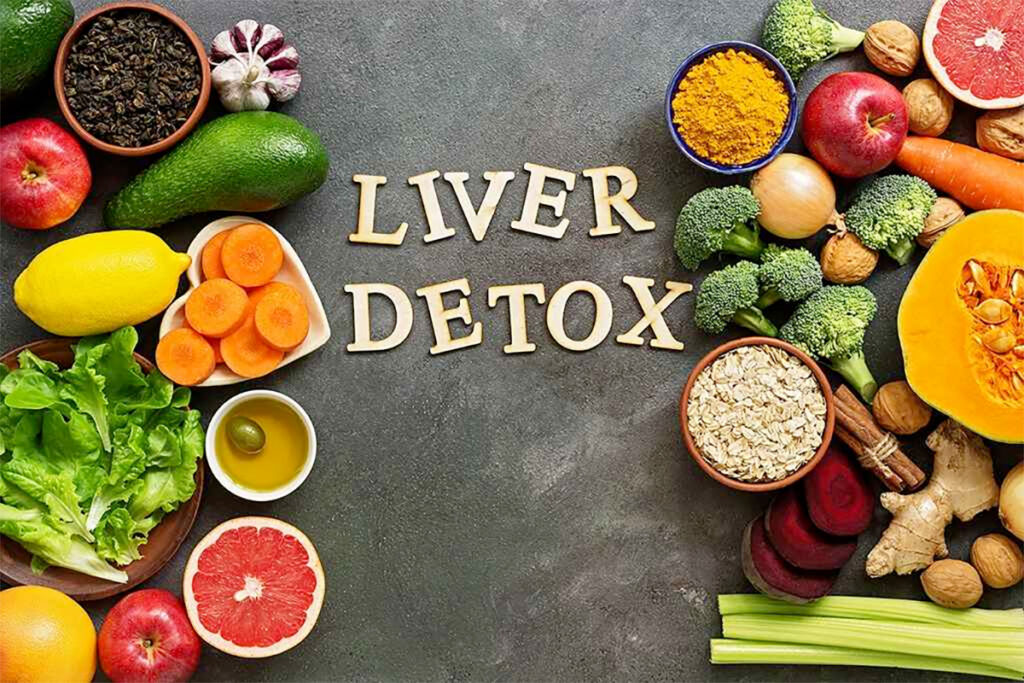The foods you eat aren’t just about giving you fuel so you stay brimming with energy. They also give your body the raw materials it needs to grow and repair – and keep you on top form.
Your liver – the biggest internal organ in your body – plays a giant role in the digestive process. After food is broken down in your stomach and intestine ¬– whether they’re carbohydrates, fats or protein – the nutrients are absorbed into the bloodstream and carried to your liver. Here they’re either used by your body immediately for energy or stored for later.
At the same time, your liver works to detoxify and expel substances which could harm your body – think alcohol, drugs and toxic chemicals, and some of your body’s waste products. Beavering away alongside your liver is your spleen: this tiny fist-sized organ, situated behind your left ribs, filters blood, getting rid of old cells, and helps your lymph nodes produce antibodies to fight infections. So, eating foods for both liver and spleen health could be important if you want to stay healthy.
Foods to avoid for optimal liver health include alcohol, processed meats, foods that are high in saturated fats, or are high in sugar and salt.
However, there are other foods you can eat that could actively promote good liver health. Here, we look at 10 of the best things to put on your plate (or in your mug):
10 liver-loving foods to try
- Coffee
Good news for caffeine addicts. The World Health Organization recently confirmed that regularly drinking moderate amounts of coffee may prevent liver cancer. Coffee also reduces the risk of developing other liver conditions including fibrosis (scar tissue that builds up within the liver) and cirrhosis.
Drinking coffee can slow down the progression of liver disease in some patients. And it doesn’t matter how you take it – filtered, instant or espresso – it still has beneficial effects. - Avocadoes
One study found that avocado oil can help decrease liver inflammation associated with non-alcoholic fatty liver disease. Researchers have also found that, when consumed as part of a balanced diet, avocadoes are associated with weight loss and overall improved liver function in tests. People who regularly feast on avocados are also more likely to have a lower BMI and waist circumference, which is associated with a reduced risk of non-alcoholic fatty liver disease. They also have higher levels of ‘good’ cholesterol. It’s thought that some of these effects are related to the high fibre, healthy oil, and water content of avocados. - Leafy, green veg
Cabbage, broccoli, cauliflower, and Brussels sprouts are all cruciferous vegetables. Regularly eating these natural foods for liver health is believed to have benefits, including supporting its detoxifying actions and balancing liver enzymes. They also contain a compound called indole, which has been shown to help fight or prevent fatty liver disease. - Berries
Eating berries regularly is a brilliant way to help make sure your liver is supplied with the antioxidants it needs to stay healthy. Antioxidants called polyphenols are found in high amounts in berries like strawberries, blueberries and raspberries. Studies have suggested these might help reduce the risk of non-alcoholic fatty liver disease by increasing fatty acid breakdown and reducing insulin resistance and inflammation. Blueberries are also thought to help increase immune cell response thanks to the antioxidant flavonoids they are packed with (including anthocyanins, which give their intense purple colour). - Oily fish
Omega-3 fatty acids may help decrease the inflammation that can be characteristic of fatty liver disease – and oily fish are the best source. Omega-3s may also improve blood levels of total cholesterol, triglycerides (high levels of which are linked to greater risk of heart disease) and HDL (‘good’) cholesterol.
Eating oily fish can have a positive effect on body mass as it’s an excellent source of lean protein, which can help you feel fuller. Omega-3 fats can be incorporated into your diet by including a portion of fatty fish like salmon, mackerel or sardines, at least once a week. - Nuts
Nuts, including almonds, hazelnut and Brazils, are good sources of vitamin E, a nutrient that research suggests may help protect your liver. One 2019 study found a diet higher in nuts to be associated with a decreased risk of non-alcoholic fatty liver disease.
- Nuts are also high in healthy monounsaturated and polyunsaturated fats, and beneficial plant compounds.
- Green tea
This drink is brimming with catechins – plant-based chemicals that have powerful antioxidant effects. One study found that drinking 10 cups of green tea per day was associated with improved blood markers of liver health, while another found that drinking green tea for 12 weeks improved liver enzyme levels and may also help reduce oxidative stress, inflammatory responses and fat deposits in the liver. Research also suggests green tea may protect against liver cancer. You’ll get more catechins if you brew tea yourself and drink it hot. Iced tea and ready-to-drink green teas are likely to have much lower levels. - Oats and grains
High-fibre foods, such as oatmeal and wholegrains, can help improve liver function. According to studies, eating more fibre might help you avoid a fatty liver, and speed up recovery from some types of liver damage. Intake of wholegrains dietary fibre is also linked with lower risk of liver cancer. Plus, oats are rich in antioxidants, which can reduce the negative impact of free radicals on your liver. - Olive oil
Olive oil’s healthy monounsaturated fats have been associated with decreasing fat content in the liver. One lab study found rats with non-alcoholic fatty liver disease given olive oil had a decreased build-up of triglycerides, which are associated with a fatty liver.
Olive oil is beneficial when it comes to improving HDL (‘good’) cholesterol levels, and lowering LDL (‘bad’) cholesterol levels. And it’s rich in plant compounds thought to help decrease inflammation throughout the body. - Beetroot
This deep purple veg is brimming with antioxidants thought to have anti-cancer properties. Eating beet is also shown to help reduce high levels of liver enzymes and inflammation. Beet stalks and leaves also have similar health benefits. If you aren’t a fan of beets, you can get many of the same results from beetroot supplements and powder.

Healthy liver habits
Other diet tips for boosting your liver health include:
- Eat food packed with fibre: Fibre helps your liver work at an optimal level. Fruits, vegetables, wholegrain breads, rice and cereals can take care of your body’s fibre needs. Drink lots of water to prevent dehydration and help your liver to function better.
- Limit your alcohol intake. Drinking regularly or to excess can lead to a build-up of fats that



